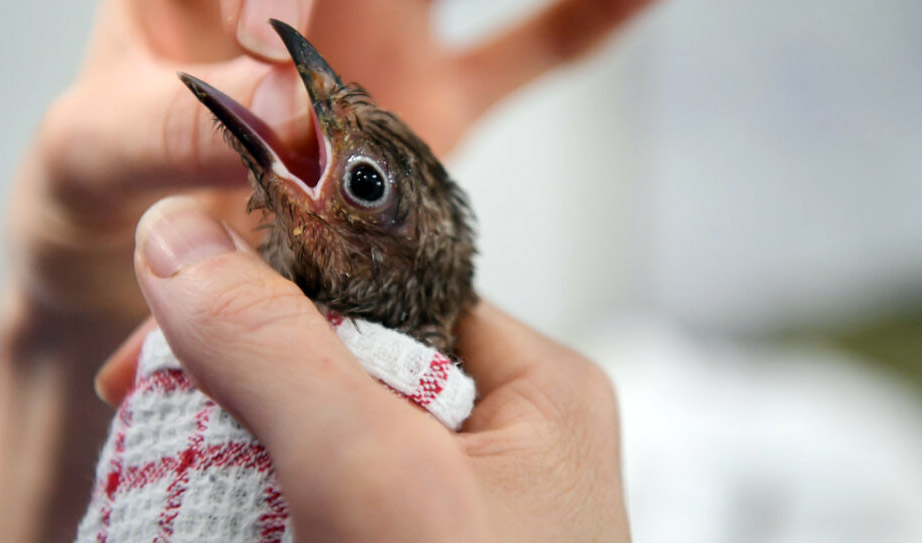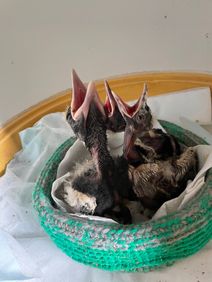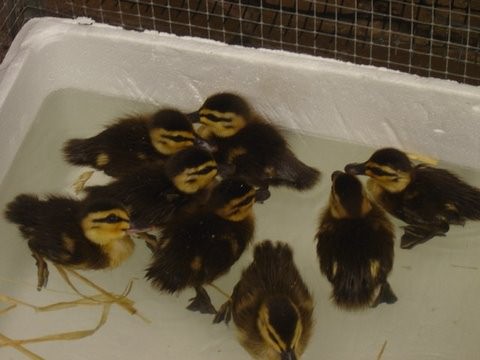Native Birds
We are very fortunate in Australia to have such a diverse range of native bird species. Thousands of wild creatures are injured, orphaned, and killed every day in Australia. In the majority of cases, this is caused by humans from motor vehicle injuries, cat predation caused by owners who do not properly confine their pets, and in some cases, outright animal abuse. In addition to assisting sick or injured birds, there’s also a lot we can do to lessen the chances of them being wounded or killed.
Found An Injured Bird?

How to help:
Injured animals can most likely be distressed or aggressive. Beware of sharp claws and beaks.
-
Use an old towel or blanket to hold/catch the bird. Using bare hands may increase stress on the bird and the likelihood of injury to both the bird and the person.
-
If the bird is caught in a net or meshing that restricts its ability to move and fly, have someone assist you while you free the bird.
-
Do not give sick, injured, or orphaned wildlife any food or drink. You may be unknowingly feeding them unsuitable foods and this may cause further issues with the animal’s health.
-
Attempting to care for any injured wildlife yourself or plan to keep it as a pet is never a good idea. Whilst you may have good intentions, you may unknowingly cause the animal further harm.
-
Record exactly where you found the injured animal
In almost all cases if the animal is rehabilitated and deemed fit for release it will be released as close to possible as to where it was found. This massively increases its chances of survival.
Call your local 24/7 vet clinic or wildlife shelter for help as soon as possible.
Found a baby bird?

If you've found a baby bird alone on the ground, its mother is usually in the area. The mother is most probably watching or getting food. Baby birds may appear to have fallen out of trees, but it’s natural for them to sometimes be on the ground to forage and develop skills needed later in life. The baby birds are unable to fly but are capable of climbing trees.
Unless a baby is visibly injured, they don’t need to be brought in.
How to assess if they need help:
1. They have no feathers
2. They are visibly injured
3. Their parents are dead nearby
If in doubt call your local vet clinic or shelter but do not touch or catch the animal, unless advised to do so.

Help Prevent Injury to Birds

Safe Cat, Safe Wildlife
One of the greatest threats to birds is Outdoor Cats.
The number of wild animals that cats kill is astronomical.
We estimate 95% of animals we rescue have been injured or affected by cats.
There are simple solutions:
- Keep your cat indoors or in an outdoor enclosure.
This will not only keep wildlife safe but themselves as well while still allowing them to play and explore. Cat owners can install barriers along their fences to stop them from escaping for as little as $200.
-When outdoors, even when contained, use bell collars.
Water for Wildlife
In the summer, help your local wildlife by leaving out some water.
Remember to:
- Use shallow bowls that will not tip over when the animals drink from it
- Use stones or sticks to ensure that animals that fall in can climb out
- Change the water often
- Leave the water in the shade in a safe place
If you find heat stressed animal, please contact your nearest shelter and keep the animal cool and quiet until it can be assessed. Offer the animal water, but do not feed it.
Download a brochure about Heat stress Signs:
Wildlife Friendly Netting
Fruit tree netting that isn't secure can trap and kill thousands of flying foxes and birds.
If you wish to use netting to safeguard your fruit, only use
wildlife-safe netting.
Wildlife-safe netting has a mesh hole size of 5mm x 5mm or less. It is not wildlife safe if you can poke a small finger through the net.
Alternatively, you can use Net bags or fruit stockings!
Remember to check netting-covered trees every day to ensure no animals are caught and remove any old netting that isn't protecting your fruit.
Don’t Feed Wildlife
It’s important not to feed wildlife.
Feeding wildlife can:
-
Alter the natural behavior of wildlife
Bread in particular can cause severe damage to young wildlife.
Feeding adult wildlife bread means their young can be born with disabilities since they are not receiving the correct nutrition, alternatively, feeding the young bread could cause them health issues as they are not getting the correct meals from their parents.
-
Make some animals aggressive
-
Cause poor nutrition and spread of disease
Don't feed magpies and other meat-eating birds. Many people think they are helping by giving these birds mice meat but mice have no protein or calcium and can cause serious deficiencies.
-
Encourage the presence of vermin in the wildlife habitat
Instead, you can help by planting native shrubs and trees in your gardens to replenish the increasing loss of habitat and food sources for our wildlife.



